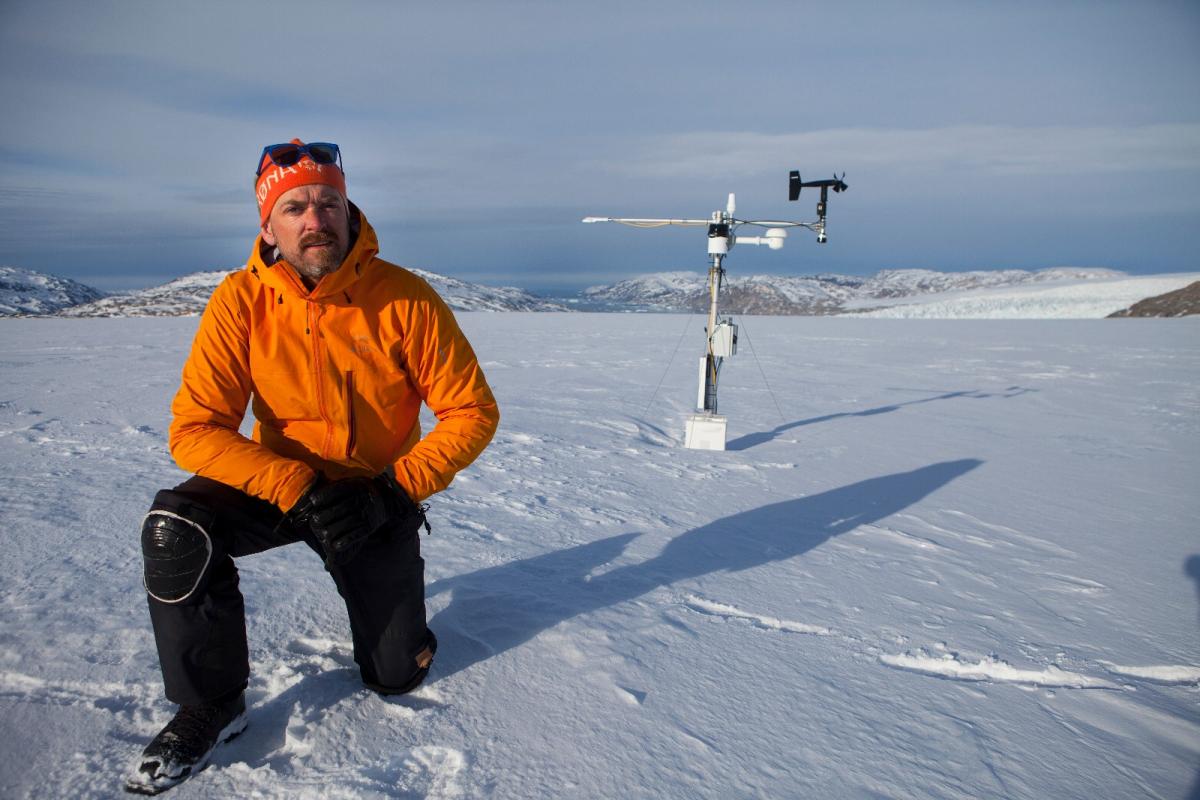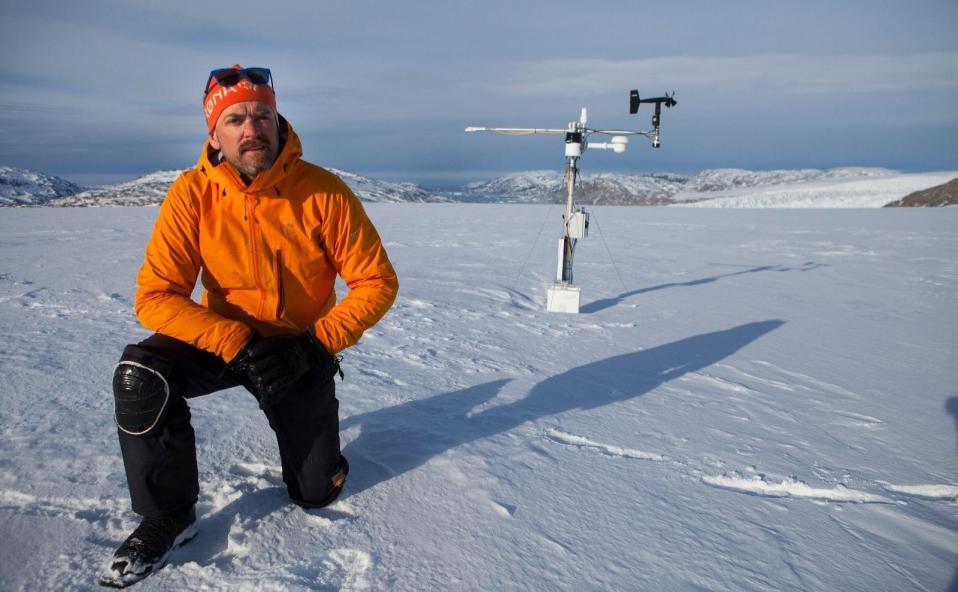A leading research scientist studying the Arctic will be speaking in Chestertown on Tuesday, Feb. 28, sharing stories, observations and insights from his adventurous career.
Jason Box is a climatologist and glaciologist who has made 30 separate expeditions to Greenland and camped on the ice for more than a year. In “Arctic Climate & Greenland Ice,” he will recount some of what he has learned and what it means for not just the polar region, but the world.
The melting of Greenland ice sheets is one of the largest factors driving sea level rise, and scientists study everything from soot on top of glaciers to the (relatively) warmer water helping to melt them from below. Understanding the various effects is critical to proper modeling to underpin decisions about how to address climate change.

Jason Box
A research professor in the Glaciology and Climate Department of the GeologicalSurvey of Denmark and Greenland (GEUS), Box has also worked to communicate his science to the public, appearing in three documentary films, giving interviews to Rolling Stone Magazine, CNN and others, even crowdfunding some of his research.
His talk in Chestertown will be at 7 p.m. in the Garfield Center for the Arts at the Prince Theatre on High Street with a reception will follow. The talk is free and open to the public, but pre-registration is required at www.washcoll.edu/box.
The event is organized by Washington College’s Center for the Environment and Society as part of its “Polar Expedition with Washington College” series of invited speakers this winter. Box’s talk is sponsored in part by the department of environmental science and studies with generous support from the William James Forum Fund.
Founded in 1782, Washington College is the nation’s first liberal arts institution and the tenth oldest college in the nation. Enrolling approximately 1,100 undergraduates from more than 35 states and a dozen nations, Washington is known for outstanding academics with an emphasis on hands-on, experiential learning across more than 40 multidisciplinary areas of study. The College is home to nationally recognized academic centers in history, writing and the Center for the Environment and Society. In addition to its main campus in Chestertown, Maryland, Washington also features a riverfront campus and a 5,000-acre river and field campus that provides unique research opportunities for students and faculty.



Write a Letter to the Editor on this Article
We encourage readers to offer their point of view on this article by submitting the following form. Editing is sometimes necessary and is done at the discretion of the editorial staff.